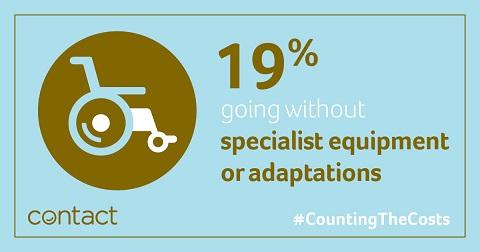
Published on: 05/12/18
Cuts to welfare services have resulted in a sharp rise in disabled children going without

Published on: 05/12/18
Cuts to welfare services have resulted in more than a quarter of disabled children going without essential therapy and a fifth going without specialist equipment, according to a survey.
This is leading to the increased ill health of the country’s most vulnerable children and their carers, according to Contact, the charity which conducted the survey, Counting the Costs.
Over a quarter of the families surveyed said their child's condition worsened due to going without the basics and 60% of parents said it has made them unwell.
The survey also found:
Amanda Batten, CEO of Contact, said: "Disability costs have gone up while financial support has dropped away. At the same time the system of support for disabled children and their families has been hollowed out, creating a perfect storm.
“These survey findings bring to life the consequences of all this. Crippling costs and cuts to financial support are affecting the health of disabled children and their parents across the country.
"It is truly distressing to hear disabled children are going without essential therapies and equipment. These are not luxuries, they are essential to keep disabled children well and able to do everyday activities that others take for granted like eat, talk, leave the house and go to school."
In response to the Counting the Costs 2018 findings, Contact is calling for: